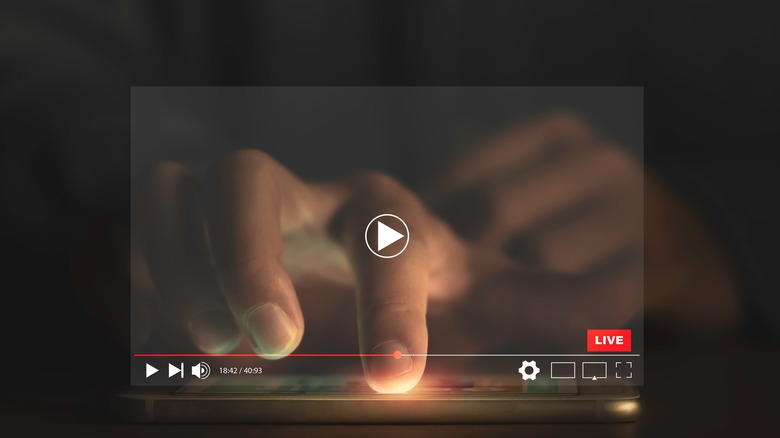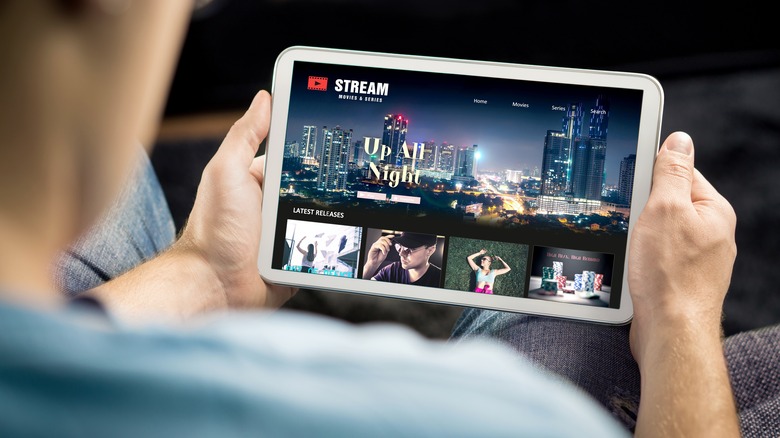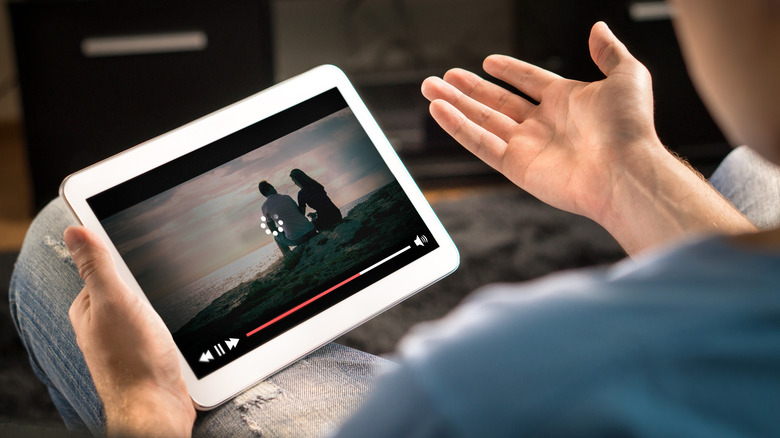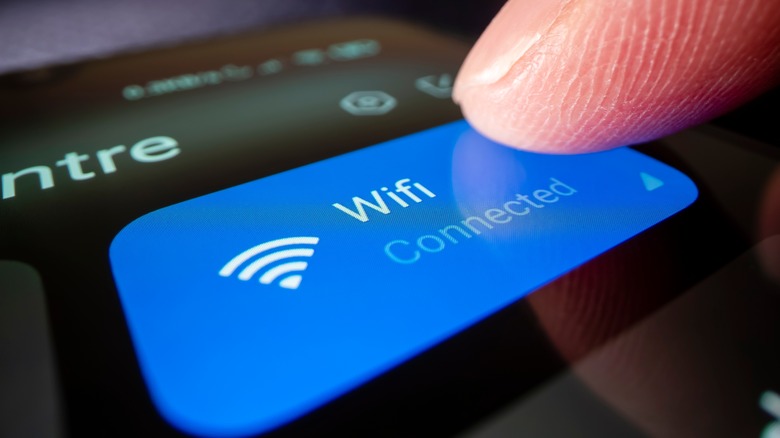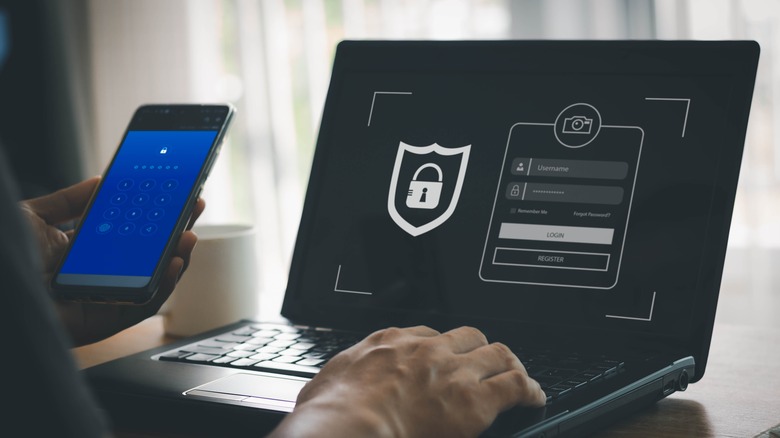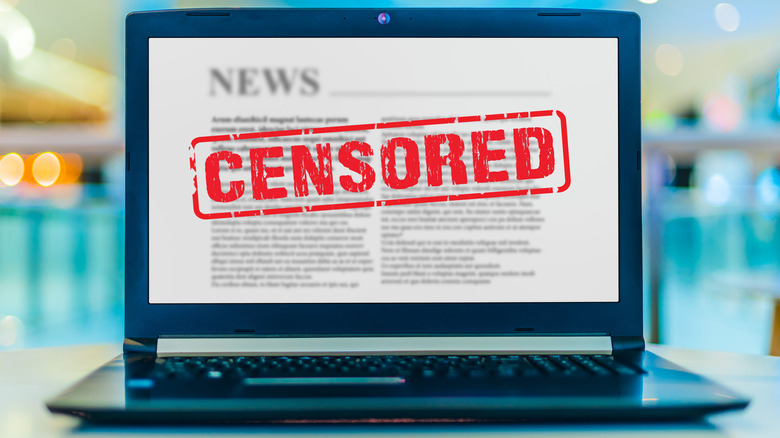5 Reasons Why You Should Be Using A VPN With Your Streaming Device
Streaming has become the default entertainment option for billions worldwide, with the average American dedicating just over three hours a day to this digital pastime. That's a lot of time spent behind big and little screens watching everything from sports to movies and TV shows.
If you frequently stream content to your devices, you've probably experienced the frustration of not being able to access the content you want while traveling. While geographic restrictions or unexplained drops in internet speed often lead to buffering while watching your favorite shows, there is a way to potentially fix those concerns.
Virtual private networks (VPNs) offer a workaround for these issues, allowing you to enjoy uninterrupted streaming almost anywhere in the world — with the added bonus of helping to protect your online privacy. VPNs do this by encrypting your internet traffic and hiding your IP address and exact location, so you appear to be in a different part of the world.
You can install a VPN on your Smart TV, phone, and computer to get these benefits across your devices. Investing in a VPN can help ensure you have an optimal streaming experience every time you connect to the internet.
Unlock a world of unlimited content
Whether you spend a lot of time streaming while traveling abroad, or want to explore the Netflix catalog in another country from the comfort of your home, watchers will need a VPN or they'll run into problems. That's because most streaming services geo-block their content. Even if you disable location services on your device, streaming platforms can use your device's IP address to determine where you're at in the world and prevent you from accessing content from outside that region.
If you're in Japan, for example, you won't be able to watch the same content as you would if you were in the U.S. The good news is VPNs allow you to bypass these restrictions by masking your IP address so you can change your virtual location, making it look like you're in the U.S. or another location, even if you're thousands of miles away.
VPNs route your internet traffic through servers located in different parts of the world. That way, wherever your travels take you, your favorite TV shows and movies remain just a click away.
Bypass ISP throttling
Have you ever been in the middle of a TV show or live sports event, only to be interrupted by unexpected throttling? If so, ISP throttling could be to blame. ISP throttling is when the internet service provider deliberately slows down your internet connection without letting you know. They do this to ease network congestion during peak hours, enforce data caps, and control internet traffic over their network.
Because streaming consumes so much data, ISPs often throttle connections if they notice you streaming during periods of high traffic. These restrictions can really throw a wrench in your binge-watching plans by causing lag, slow load times, and frequent interruptions.
Since VPNs hide your IP address and encrypt your online activity, ISPs have no way of tracking your online behavior or the type of content you're accessing, preventing them from selectively slowing down your internet connection based on your online activity. This allows you to stream what you want when you want.
Stream on public Wi-Fi with confidence
Chances are your streaming isn't limited to the confines of your home. Connecting to an unsecured public Wi-Fi network is usually the only option when you're out and about and want to stream content. The problem with public Wi-Fi is it can leave your device and personal information vulnerable to hacking and data theft. Public wireless networks are an easy target for cybercriminals, who often use them to gain unauthorized access to users' devices to steal sensitive information or inject malware.
When you use a VPN while streaming over a public network, all of your data is encrypted, ensuring sensitive information like passwords, credit card numbers, and personal data are secure. Your IP address is also masked when using a VPN, making it difficult for third parties, including ISPs and hackers, to track your location and online activities. It's a good idea to use a VPN with a kill switch when using public Wi-Fi so you won't be left unprotected, even for a moment.
Stop ISP snooping
Besides throttling, ISPs are nosy, tracking and monitoring all of your online activity, including your streaming habits. It doesn't end there: providers often use the information they gather to sell information about your streaming activities to third parties, which can lead to unsolicited targeted ads and privacy violations. They can even turn this information over to the government upon request if provided with a subpoena.
That means a lot of your data is available to a lot of people. If you want to keep your internet life private, you need to take steps to prevent your ISP from collecting data on the TV shows you watch, the movies you stream, and the websites you visit.
VPNs allow you to do just that by encrypting the internet traffic traveling between you and the VPN server, preventing your ISP from reading it. When you connect to a VPN, your IP address is masked, hiding your location and identity, allowing you to browse the internet privately while maintaining your security and avoiding targeted ads and tracking.
Freedom from censorship
Most of us take for granted that we can stream what we want, whenever we want. However, some authoritarian states use IP addresses to restrict access to specific content and websites. If you visit one of these countries, you may find yourself unable to access your streaming content without a VPN. A VPN's geographic spoofing allows you to mask your actual location so it looks like you're accessing the internet from a different country.
Countries known for restricting access to certain internet content also log and monitor online activity. By using a VPN, you can protect yourself from surveillance and maintain your online privacy and anonymity. You can also use your VPN to bypass national internet firewalls, with one of the most famous examples being the "Great Firewall of China." Using a VPN to get past these firewalls allows you to access the global internet, free from restrictions, ensuring you can get to the streaming platforms of your choice.
